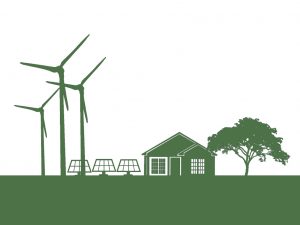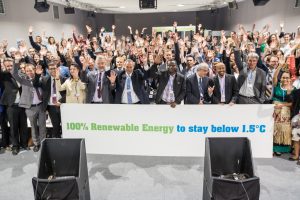Without doubt, the biggest story now in the global power sector is the sudden rise of renewables, particularly the surge in wind and solar power deployment. But, the story is different for Nigeria’s distributed renewable energy (DRE) which desperately needs a firm policy support.
A recent report by the International Energy Agency (IEA) indicated that wind and solar capacities have grown ten-fold what they were a decade ago.
The IEA reported that every few weeks seemed to bring a new milestone in the renewable energy market. Whether it’s a record low bid in an auction for new solar power or a record high level of generation from renewable sources, the numbers just keep turning out in pleasant manners.
According to the agency, the momentum behind renewables has also become very high, and pointing to a virtuous circle of deployment that has spurred innovation, cost reductions and job creation.
But understanding the source of this momentum became necessary to ensure its retention, and perhaps escalation especially in regions and markets like Nigeria still struggling with mainstreaming renewables in their power mix.
In many cases, the IEA indicated that support policies and frameworks have been giving renewables a strong push. It estimated that globally, circa $750 billion in economic incentives have been provided to renewables over the past decade, and added that while falling costs are reducing the need for financial incentives, policies are however still essential to set the necessary conditions for the market to achieve a firm growth.
Take solar PV for example, IEA explained that recent auction results show that solar PV projects are offering impressively low prices – as low as 3 cents/kWh – in places where the resources are abundant and low-cost financing is available.
Nigeria is widely considered to have abundant solar resources, but the fact remains that still only a small fraction of solar power is currently fully competitive in the country, and this is because there are no tangible policy supports from the government, though the government claims otherwise.
The IEA further explained that while solar made up one-quarter of all global capacity additions in 2016, nearly all of this growth actually relied on some form of government incentive, thus indicating that for the market to really segue, it requires firm government policy – a necessary ingredient that is lacking in Nigeria whose circa 89 million people are reportedly without electricity.
Indeed, changes in policy have created boom-and-bust cycles in some markets, as investors respond to incentives when they are available, and then back off when the policies are weakened or withdrawn. Regrettably, commitments so far shown by investors in Nigeria’s renewable energy market, have been without any form of government supports or policy incentives.
For technologies like solar PV that rely on policy supports to fairly compete with old supply systems, shifts in policy matter a great deal. The result of increased policy ambitions should no doubt be evidenced by investors’ reaction to their commitments. Up to 14 utility scale solar IPPs have been on the sides waiting for Nigeria to make this ambitious policy shift.
It would be nice to note that back in 2008, China’s official solar target was 1.8GW of capacity by 2020, but by 2014, the IEA reported that Chinese policy had become significantly more ambitious and the target for solar raised to 100GW by 2020. Nigeria has hardly followed up its own ambition of 30 per cent renewable energy contribution to its power mix in 2020 with matching policies.
Additionally, in many countries, solar and wind have already moved into the full competitiveness band, and can really stand on their own because investments in them are justified by the market revenues they yield without additional subsidy, thus making mockery of repeated excuses that they aren’t competitive.
We are of the view that steady policies that will impact market design and structural changes to the power system in Nigeria still matter and will be essential to ensure adequate returns for investments in renewables.
We are also of the opinion that to integrate higher shares of variable wind and solar power into Nigeria’s energy mix, the government needs to change what it is doing to concentrate on what needs to be done. The rise of renewables has proven that with good policies, they would always help nations overcome their energy poverty cheaply and timely. We thus urge Nigeria’s policymakers to step up their efforts in this area.





